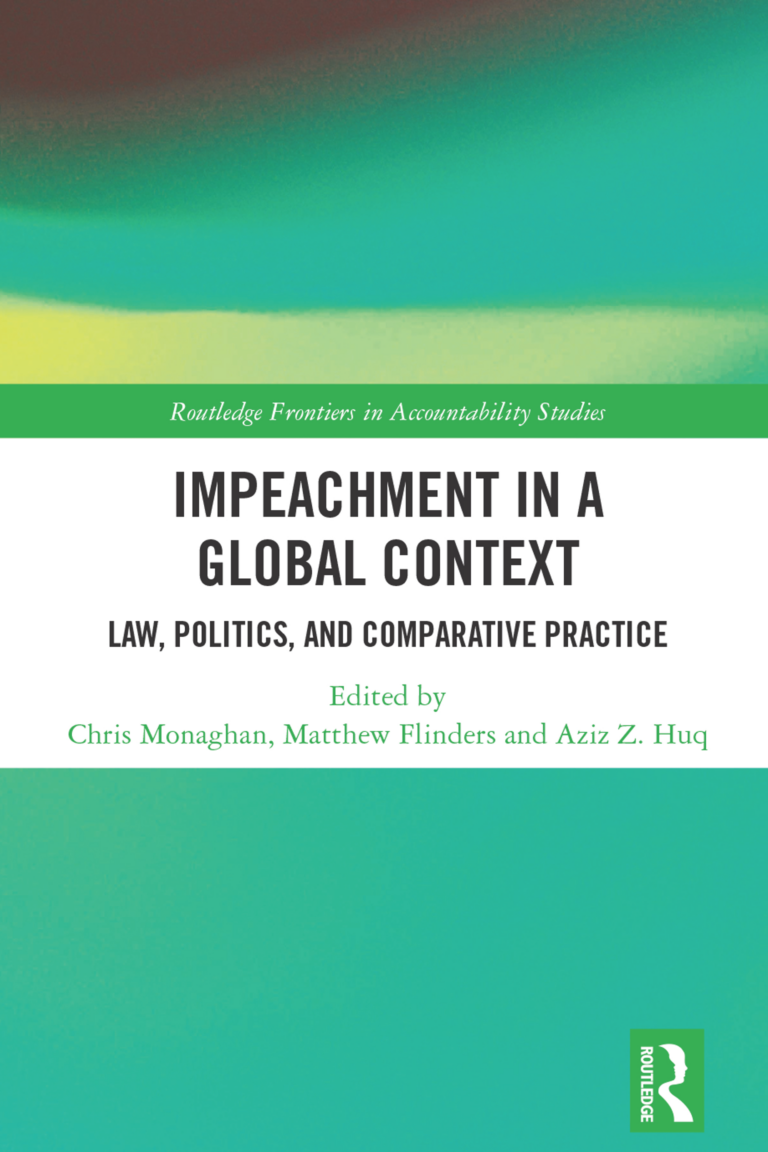Chapter in Impeachment in a Global Context: Law, Politics, and Comparative Practice (Routledge, 2024).
This chapter examines impeachment from a global perspective by accounting for the ways in which it is set up and used in diverse national contexts. Primarily, this is a matter of constitutional law: the design of removal procedures for chief executives is almost uniformly a matter of constitutional text, not statutory policy. This reflects an assumption that the question is an important one to be insulated, to some extent, from transient politics. The examination of impeachment provisions and practices globally is relevant to a number of questions fundamental to a democracy. A global view of impeachment can illuminate its potential function in a constitutional democracy and hence suggest how its scope and mechanisms might be reconciled with electoral democracy. This sets up the following questions. When should a democratic mandate be superseded because of the perceived costs of allowing the people’s choice to remain in power after some form of wrongdoing? If supersession is to be allowed, should it be through a political process (defined and judged according to partisan standards) or a more formalized, law-governed process (for example, as defined by the criminal law)?
The focus of this chapter is primarily on fixed-term executives who tend to be called presidents. Such officials are found in an array of political systems, including presidential systems, semi-presidential systems, and even some parliamentary systems. It includes heads of state in parliamentary systems who tend to have a more ceremonial role but excludes prime ministers (who are typically disciplined instead through a parliamentary ‘vote of confidence’ mechanism).

